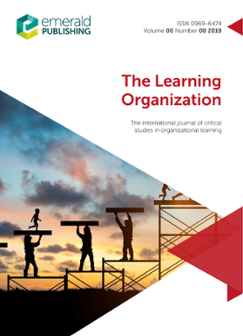Table of contents
Improvisation in the learning organization: a defense of the infra-ordinary
Miguel Pina e Cunha, Stewart CleggThis paper aims to describe the hidden presence of improvisation in organizations. The authors explore this presence through George Perec’s notion of the infra-ordinary applied to…
Habermas, interests and organizational learning: a critical perspective
Laurie FieldThis paper aims to use critical theorist Jürgen Habermas’s conceptualization of the relationship between knowledge and interests to better understand the role of common and…
Tacit knowledge as a multilayer phenomenon: the “onion” model
Dan Asher, Micha PopperThis paper aims to clarify the term “tacit knowledge” and suggests the “onion model” as a way to explore conceptually linked layers of tacit knowledge. The model allows the…
Organizing for inter-organizational learning in service networks
Jean-Paul Peronard, Jacob BrixThe purpose of this study is to consolidate existing research on ‘service networks’ and to frame this literature as a new ‘context for learning’. Research from…
Moderating role of innovation culture in the relationship between organizational learning and innovation performance
Peivand Ghasemzadeh, Jamal A. Nazari, Mandana Farzaneh, Gholamhossein MehralianDifferent studies have analyzed the relationship between organizational learning (OL) and innovation performance (IP). However, the question of how innovation culture (IC) affects…
The New Learning Organisation: PART I – Institutional Reflexivity, High Agility Organising and Learning Leadership
Elena P. Antonacopoulou, Christian Moldjord, Trygve J. Steiro, Christina StokkelandThis paper aims to revive the old idea of the Learning Organisation by providing a fresh conceptualisation and illustration. The New Learning Organisation is conceptualised…

ISSN:
0969-6474Online date, start – end:
1994Copyright Holder:
Emerald Publishing LimitedOpen Access:
hybridEditor:
- Professor Nataša Rupčić